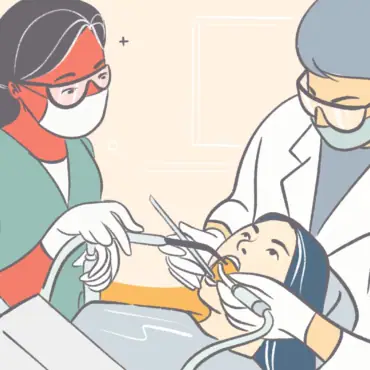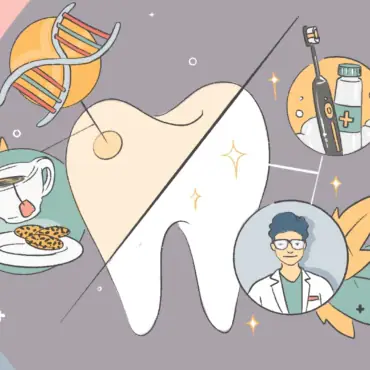Getting and analyzing reports for dental practice accounts receivable is crucial to understanding the health of your practice. Medical billing reports are vital and arguably serve as the lifeblood of the practice’s cash flow.
Let’s look at the 7 reports for dental practice AR that’ll help you understand the health of your practice.
1) Patient analysis report
The patient analysis report is arguably one of the most essential reports for dental practice AR. In fact, it’s the report you should be checking most often to see how your practice is performing. Ideally, you should inspect this report every month. Many people recommend running through the report every week.
It’ll showcase where the practice stands by describing several different variables. The report will indicate the types of patients you’re seeing, how often you’re seeing them, and where they’re coming from. It also contains information on the active patient base, the insurance base, and patient hygiene.
The best way to analyze the report is to look at patients seen in the last year, the last two years, and the last three years. Take a further look into these percentages to see any areas that you might need to improve.
2) Accounts receivable reports
If you’re not already receiving a dedicated accounts receivable report, you’re not doing your practice justice. It’s the main report for dental practice AR and is typically available through most accounting software on the market. Most software allows you to add filters, but you may wish to ignore these to get the most accurate numbers possible.
When calculating monthly production, consider any credit values in the accounts receivable. There may be individual balances that need adjustment, so it’s vital to review the report periodically.
You should also take a look at the aging category. That essentially allows you to identify what represents the most considerable portion of the practice’s accounts receivable. Keep an eye on the age of the balance. As that grows older, the probability of collecting the amount diminishes significantly.
3) Outstanding claims by aging category report
A lot of modern dental practices accept insurance payments regardless of their participation with an insurance plan or not. These practices need to keep a close eye on the outstanding claims by aging category report. It’ll help ensure a consistent collection of these outstanding claims and help you maintain a balance.
Worry-free insurance verification
Opencare takes the guesswork and effort out of insurance verification.
The report will showcase all patients with open claims, and you can see which ones belong to the same insurance company. Once you’ve identified the following, it can become a simple task of calling the insurance company and taking care of multiple outstanding claims simultaneously. It’s beneficial when you’re looking to see the total amount of claims over a 60-to-90-day period.
4) Provider productivity and collection productivity reports
Also essential are provider reports. They help provide specific information regarding the level of production and any necessary adjustments suppliers need. They’ll provide you with a summary of all production collections and adjustments for a specific month. They also contain all the necessary information on the number of patients and the average visit from each patient.
5) Service code and type productivity reports
Service productivity reports essentially show dentists their practice according to the respective service category and coding. Their purpose is to showcase the services charged out for a particular month or year. It also contains useful information like the average patient fee and the total productivity level in the respective period.
6) Patient master report
For any practice, the most important contributing factor is the patient body. The patient master report will contain information on new patients joining the practice and the level of current patient retention.
Getting new patients and building retention is all about how your practice can build trust with the patient. It’s important to ensure your whole staff understand the importance of this report. Once you’re done analyzing, be sure to inform everyone what they can do to help bring in more patients and improve the level of retention as well.
7) Referral reports
One of the most common ways dental practices get new patients is through referrals. If dentists want to track these referrals, they will have to rely on referral reports that’ll help them keep track of how they’re getting new customers.
These contain information about their top referral sources and which recent patients have come through referrals. They also typically include information on patients that have visited your office after a referral and did not return afterward.
8) Hygiene recare reports
Another vital report to help keep a check on your practice’s overall health is the hygiene recare report. Hygiene recare is essentially tips that dentists share with their patients to help them maintain their hygiene and remind them to keep their cleaning appointments.
Final thoughts
Without analyzing the proper reports, it can be difficult to keep a pulse on your practice’s accounts receivable. Use all these reports to help get the best indication of the health of your practice. By effectively keeping track of the practice’s accounts receivable, you give yourself the best chance of success.
If you’re confused about how to read these reports or don’t know which ones to include, Opencare is here to help you out. We offer revenue cycle management to take these tedious tasks off of your plate, and give you time back into your day.
Collect 99% of your claims
We settle your claims, so you don’t settle for less.








